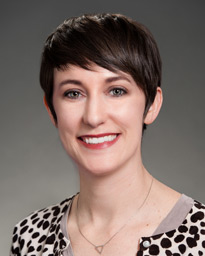Recipients of the Fifth Annual TIRR Memorial Hermann Rehabilitation Innovation Awards were announced last November at an afternoon reception held at the hospital’s research center. The competitive awards make it possible for any staff member to play a role in TIRR Memorial Hermann’s mission to conduct clinically inspired research that benefits rehabilitation patients.
Each year, a Pilot Award of up to $50,000 is granted to an experienced investigator to fund an innovative pilot project that will lead, ultimately, to federal or foundation funding for expanded research studies. Two staff awards, ranging from $5,000 to $10,000, support smaller projects designed to give therapists, nurses, social workers and other staff hands-on experience in research with mentoring by experienced investigators.

The recipient of this year’s Pilot Award is Mansi Jhaveri, DO, an attending physician at TIRR Memorial Hermann and an assistant professor of physical medicine and rehabilitation at McGovern Medical School at UTHealth. Dr. Jhaveri is using her grant to investigate the feasibility of telemedicine-guided education to empower stroke rehabilitation patients in follow-up home care after discharge from the hospital. Approximately 50 inpatients from TIRR Memorial Hermann and Memorial Hermann-Texas Medical Center will be recruited for the study.
“We hope to find new ways to improve the transition of care from hospital to home, especially for patients who are not able to follow up with their doctors and therapists due to limited mobility, resources and caregiver support,” Dr. Jhaveri says. “Stroke patients are unique in that they have the potential to achieve functional independence in the community if they continue using the fall and stroke prevention strategies they learned in the hospital. Currently, many patients are lost to follow up once they’re discharged home. By using telemedicine technology to make medical care more accessible, we hope to close that gap.”
Those who enroll in the study will have personal access to health care professionals during their first seven weeks following discharge through smart phones using the FaceTime application. During weeks 1 through 4, patients will interact with a pharmacist to ensure that there are no issues with prescriptions, a physical or occupational therapist who will conduct a virtual home assessment, a speech pathologist to assess risk for aspiration pneumonia, and Dr. Jhaveri, who will evaluate intrinsic risk factors for fall and secondary complications, provide education on stroke prevention and communicate with the patient’s primary care provider. During weeks 5 and 6, a social worker will call to discuss community resources, and a geriatrician will assess fracture risk and the need for bone density screening. At week 7, a data collector will administer a survey to assess the study participants’ comfort level with the technology and determine whether they felt it improved their care. If the study establishes feasibility of the method, Dr. Jhaveri will apply for grant funding to conduct a randomized, controlled trial to assess outcomes using the technology.

Marissa Lyon, PT, DPT, staff physical therapist at TIRR Memorial Hermann Outpatient Rehabilitation on the Campus of Memorial Hermann Memorial City, received a $9,525 staff award to determine the inter-rater reliability and predictive validity of the mini-Balance Evaluations Systems Test, Berg Balance Scale and Functional Gait Assessment, and to determine cutoff values for prediction of falls in individuals with a history of traumatic brain injury (TBI).
“These three balance outcome measures are used effectively in patients with stroke or spinal cord injury,” says Lyon, who is working on her PhD and has served at TIRR Memorial Hermann for the past two years. “Our goal is to determine if we can use them in the outpatient setting with patients with TBI in ways that can be reproducible. We believe a predictor of fall risk for this population will improve independence and help patients return to work or school more successfully.”

Clinical neuropsychology postdoctoral fellow Cady Block, PhD, was awarded $6,050 to conduct a study aimed at providing a novel preliminary characterization of the nature and clinical course of survivors of stroke in the post-injury confusional state (PICS) via serial administration of the Confusion Assessment Protocol (CAP), which was developed by Mark Sherer, PhD, ABPP, FACRM, senior scientist and director of research at TIRR Memorial Hermann and clinical professor of physical medicine and rehabilitation at Baylor College of Medicine and McGovern Medical School.
“My interests are in cognitive recovery after stroke,” Dr. Block says. “To date, the CAP has been used only in the brain injury population. It’s well documented that a percentage of stroke patients have post-injury confusion. Their sleep cycles are disrupted, and they have behavioral challenges to overcome, both of which can negatively impact their participation in therapy. We’re interested in learning the prevalence of PICS in stroke patients and their symptom trajectory. The other unique piece of the study is a three-month follow-up to determine how patients are doing at home using Neuro-QoL, a set of self-report measures that assesses the health-related quality of life of adults and children with neurological disorders. We expect to find better ways to target interventions so that patients can get as much as possible out of therapy while they’re here.”
| Telemedicine-guided Education on Fall Prevention and Secondary Stroke Prevention Following Inpatient Rehabilitation: A Feasibility Study |
| Principal Investigator: Mansi Jhaveri, DO Co-investigators: James Grotta, MD, Gerard Francisco, MD, Mark Sherer, PhD, Sean Savitz, MD, Nahid Rianon, MD, Ruby Benjamin-Garner, PhD |
| Inter-rater Reliability and Predictive Validity of the Mini-Balance Evaluation Systems Test, Berg Balance Scale and Functional Gait Assessment |
| Principal Investigator: Marissa Lyon, PT, DPT Co-investigators: Daniel Wingard, PT, DPT, Gregory Brusola PT, DPT |
| Validation of the Confusion Assessment Protocol for Assessment of Persons with Stroke in the Post-injury Confusional State |
| Principal Investigator: Cady Block, PhD Co-investigator: Mark Sherer, PhD |
Dr. Sherer stresses the importance of research at TIRR Memorial Hermann. “We want all of our staff members to have the opportunity to be involved in research,” he says. “The research projects selected for the awards are on the clinically relevant end of the continuum so that results will have an almost immediate impact on patient care. Close integration of our research and clinical staff ensures that we continue to provide the highest quality care.”
Dr. Jhaveri speaks for all three award recipients when she expresses her surprise at winning the Pilot Award. “I’m very lucky to have the opportunity to do research so early in my career,” she says. “We’re fortunate to work in an environment that encourages research with accomplished mentors. The reward for research is improving outcomes for our patients. That’s our number-one goal.”
